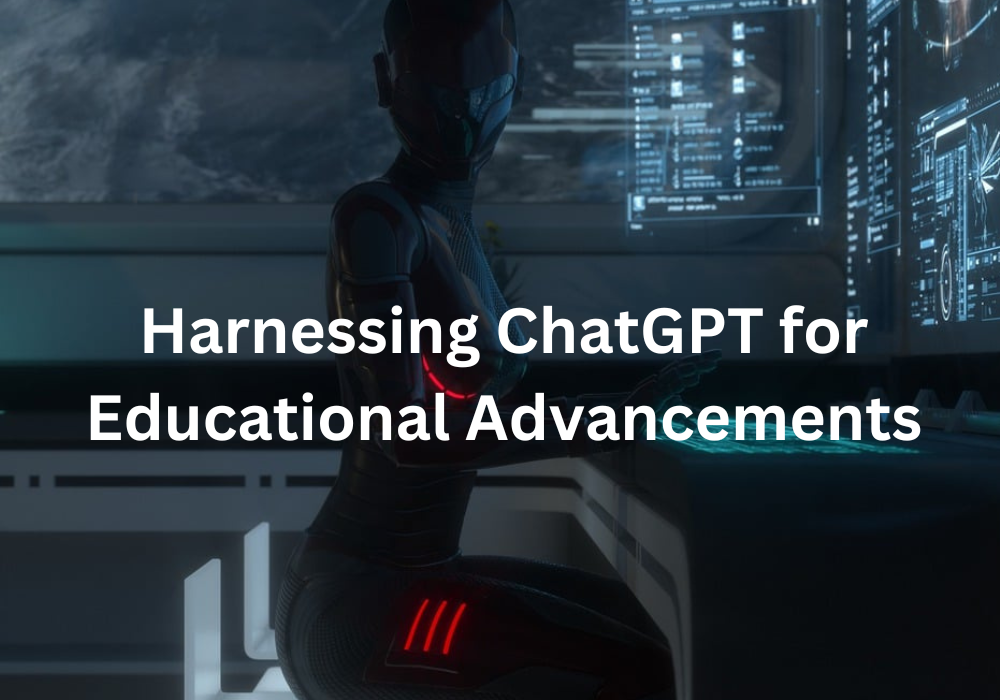In the ever-evolving landscape of education, the integration of artificial intelligence (AI) has paved the way for revolutionary teaching and learning methodologies. Among the various AI tools, ChatGPT stands out as a versatile and powerful ally in the educational sector. This article delves into the myriad ways ChatGBT can be utilized to enhance educational experiences, addressing both its capabilities and potential implications.
1. Introduction to ChatGPT in Education
ChatGPT, a variant of the Generative Pre-trained Transformer models developed by OpenAI, has been tailored specifically for conversational applications. Its ability to understand and generate human-like text makes it an invaluable resource in educational settings. From personalized tutoring to curriculum development, ChatGPT’s applications are vast and varied.
2. Personalized Learning Experiences
One of the most significant advantages of ChatGBT in education is its capacity to offer personalized learning experiences. Unlike traditional one-size-fits-all teaching methods, ChatGPT can adapt to individual student’s learning styles and pace. By analyzing responses and progress, it can provide customized feedback and resources, ensuring that each student receives attention tailored to their specific needs.
3. Enhancing Teacher Capabilities
Teachers can utilize ChatGPT to augment their teaching methods. For instance, it can assist in creating lesson plans, generating quiz questions, or offering different perspectives on a subject. This not only saves time but also enriches the educational content. Moreover, ChatGPT can serve as a teaching assistant, answering students’ queries outside classroom hours, thus extending learning opportunities.
4. Language Learning and Practice
In language education, ChatGPT shines as an interactive tool for practice and learning. It can converse with students in the target language, offering corrections and suggestions. This real-time interaction is crucial for developing conversational skills and provides a safe space for learners to practice without the fear of judgment.
5. Supplementing Traditional Education Methods
ChatGPT can be an excellent supplement to traditional education methods. It can provide additional resources, explain complex concepts in simpler terms, or offer alternative viewpoints. This not only enhances the learning experience but also encourages students to explore subjects more deeply.
6. Bridging Educational Gaps
In areas with limited educational resources, ChatGPT can play a crucial role in bridging the gap. It can provide high-quality educational content and personalized assistance, making education more accessible to underprivileged or remote communities.
7. Preparing for Future Careers
The modern job market demands a workforce skilled in new technologies. By integrating ChaGPT in education, students can gain familiarity with AI and its applications, preparing them for future careers where these skills will be increasingly valued.
8. Continuous Learning and Development
ChatGPT’s role in education extends beyond formal schooling. It can be a tool for lifelong learning and professional development, offering up-to-date information and learning resources in various fields. This is particularly useful for professionals seeking to update their skills or learn new ones.
9. Ethical Considerations and Challenges
While the benefits of ChatGPT in education are numerous, it is also crucial to consider the ethical implications. Issues such as data privacy, the potential for bias in AI-generated content, and the impact on traditional teaching methods need careful consideration and regulation.
10. Future Perspectives
The future of ChatGPT in education seems promising, with ongoing advancements in AI technology. As the system becomes more sophisticated, its potential in personalized and adaptive learning, special education, and even in managing administrative tasks in educational institutions will continue to grow.
11. Conclusion
ChatGPT represents a significant step forward in the intersection of AI and education. Its capabilities in providing personalized learning experiences, supplementing traditional teaching methods, and preparing students for a technologically advanced future are unparalleled. As we move forward, it’s crucial to navigate the challenges and ethical considerations to fully harness the potential of ChatGPT in reshaping the educational landscape.
In conclusion, ChatGPT’s role in education is multifaceted and evolving. By effectively integrating this technology, educators and institutions can offer enriched, accessible, and efficient learning experiences. The future of education, augmented by AI like ChatGPT, is not just a possibility; it’s an unfolding reality that holds the promise of transforming the way we learn and teach.

